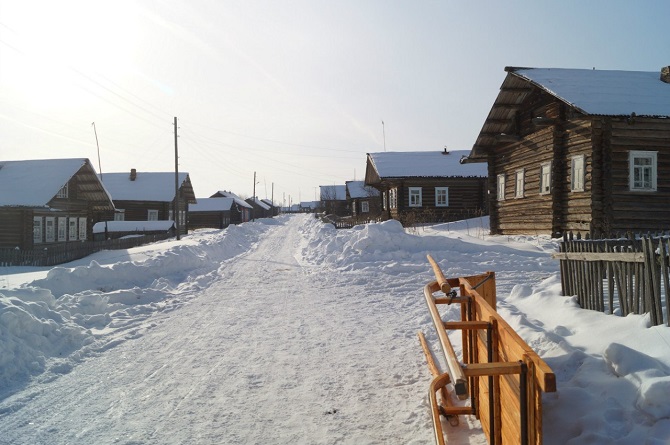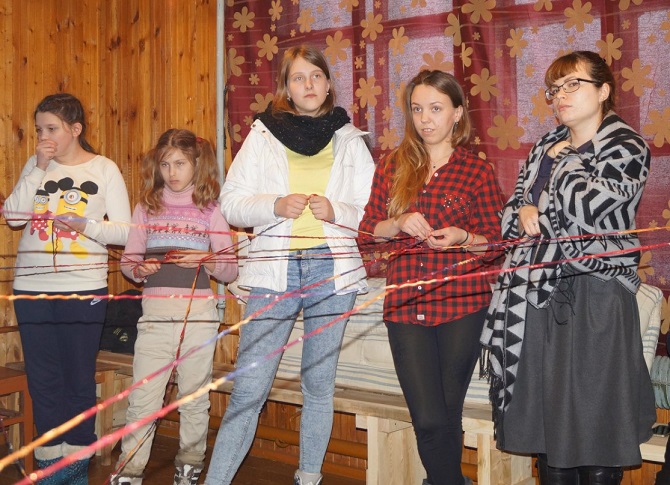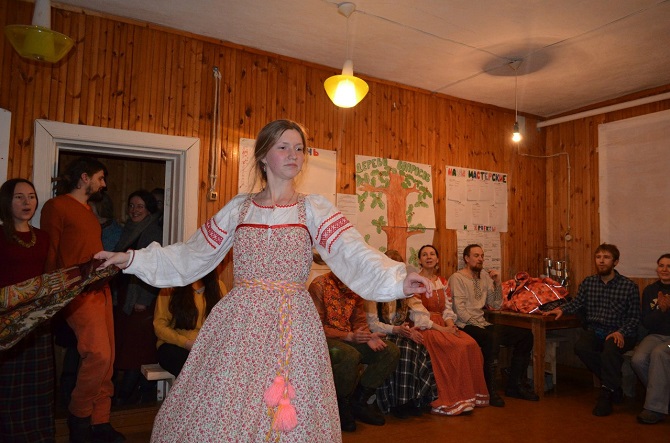Forest School Permeated With Real Life!
At the beginning of March Silver Taiga representatives took part in the opening session of the Forest School spring term. The School opens during spring break, this time for the third year in a row, in the village of Verkhny Bereznik, Ustyan district, Arkhangelsk region. All this has served an excellent basis for positive experience exchange with children.
Silver Taiga focuses significantly on education under its projects. For instance, the Model River Mezen project comprises a summer field school, which aims at teaching the principles of hydrobiology and ichthyology, and developing careful consideration of forest and river resources. Thus, enthusiasts in Ustyan district, Arkhangelsk region, opened the Forest School. The founders intended to revive community standards and attitude to the nature once lost, they wanted to develop people who are capable of self-organization and self-sufficiency.
“We are trying to teach the kids to take independent decisions, make own choices, express their views and protect their interests,” Igor, the educational psychologist who has developed the school’s general concept, says. “What we expect is a person who bears responsibility over the area he or she inhabits, who knows and understands its history, knows own roots, is able to live and work together, and understands the relation between forest and water.”
The School is operated by approximately 40 people from different villages of the district. Experts from scientific and social organizations and universities of Moscow, Saint Petersburg, Arkhangelsk, sociologists, teachers, designers, environmentalists and students work with the children.
The trainees of the Forest School master various crafts and develop skills useful for a rural inhabitant. These include beekeeping, weaving, sewing, baking, and caring for domestic animals, especially for everyone’s favourite – Larchik, the horse. In addition, the children learn something new – not only about the forest ecology, but also about permaculture (natural agriculture) basics and “emerging” trends like eco construction and eco maintenance.
One of the grown-ups involved in children work – livestock expert – shared his method of how to work with horses, “A horse may perceive you either as a leader, or as a subordinate. The key recommendation is to treat a horse not as an ordinary animal, but to understand its character, its qualities, and find a personal approach. I support soft methods. Positive reinforcement method includes rewarding the right behavior, the opposite is in no way acceptable!”
Schoolchildren also learn about alternative energy, reforestation and forest protection, obtain economic planning skills… Besides, the Forest School teaches them to live an environmentally friendly life. For example, the school features separate waste collection, the school trainees also learn and implement the “oil free” principle. In the evening, the participants gather for a meeting, sing folk songs and play folk games.
Irinya, the trainer of the Art and Tradition workshop, notes that “the forest school is permeated with real life. Here, the children are taught the right values through communication with animals and nature. The kids revive their memory of generation, the memory of their ancestors, and then a complete image is formed of such a mosaic of feelings and sensations. The facilitators select the subjects in such a way that the children could develop the right image”.
The Forest School produces its positive results now; some of its students have made a decision with regard to their future jobs, others have decided that after the university they will come back to their home villages to develop own projects.
Irina, one of the Forest School participants and graduates, expresses her opinion, “No one says it is easy to live in a village, but I want to be useful and capable of handling the challenges we, rural residents, face. That is what the Forest School teaches us to do.”






